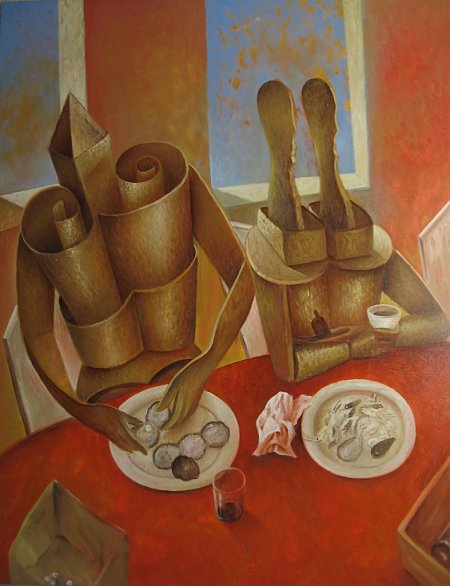
On Nervous Breakdowns
I thought about them a lot when I was a kid—nervous breakdowns. I didn’t know anybody who had had one, but I knew that grownups were prone to them, and that at any given moment a parent or teacher or uncle or coach or babysitter could have one. And of course, I knew that they were debilitating. A nervous breakdown, as I understood it, caused a person’s brain to seize up like an overheated engine, delivering the victim into a state of whimpering helplessness. It plunged the soul into darkest midnight. Most damningly, it erased the Human Essence—the radiant core, the vibrant center, the place where joy and love and courage and optimism resided. In other words, a nervous breakdown wrecked a human being fully. It reset a person at zero.
I knew about nervous breakdowns because I had heard them discussed, though never at much length. Mainly, I heard nervous breakdowns mentioned, always by adults, usually by women, who speculated that a particular acquaintance might soon have one, or would surely have one, or had somehow defied the odds (though really, it was only a matter of time) by not yet having one. This was in the 1970s, a decade filled with chatter about mental well-being. Terms like self-actualization and primal therapy and gestalt effect buzzed in the air like strange insects; I heard them and didn’t give them much thought. But the nervous breakdown was a different thing entirely. It was simple, graspable, plainly understood. It struck fear in people, like a monster running amok in the countryside. Rapt and worried, I listened to the stories that circulated. I learned that my favorite comedian, Steve Martin—whom I idolized, because he used naughty words, and because he was unprecedentedly wacky—had once had a nervous breakdown, and suddenly his wackiness didn’t seem funny, but now felt troubling, tainted. I learned also that a fellow named Richard Nixon, an important man of some stripe or other, was almost certainly going to have a nervous breakdown, because he had lost his job and then given a blabby farewell speech, which apparently portended dark clouds on the psychological horizon. (Not so many years later, I would hear disquieting talk about Jimmy Carter’s “malaise” speech and assume that he, too, was on the verge of mental collapse.) In general, the world seemed swollen with references to nervous breakdowns, though not everyone appeared worried. Many adults, in fact, displayed a surprising nonchalance about the whole business. They joked (“Eleanor’s afraid we won’t have enough hors d’oeuvres for the guests—she’s practically having a nervous breakdown about it”); they stood by, unappalled, while the Rolling Stones sang “19th Nervous Breakdown,” a song so jaunty and vicious that it upset even my pre-adolescent sensibilities; they went about their daily lives, affable and unruffled, as if they were not among the very damned. One of my vivid memories from this period is of going to the movies with my parents and laughing through The Return of the Pink Panther until, at film’s end, Clouseau’s shenanigans drove Chief Inspector Dreyfus to the point of emotional disintegration, and he was straitjacketed and deposited in a padded room, where he flailed on his back, his feet twiddling like an insect’s. “Look!” shouted one delighted moviegoer, his voice shrill above the widespread laughter, “Clouseau gave the Inspector a nervous breakdown!” The moment was, and forever is, my earliest recognition of human savagery.
